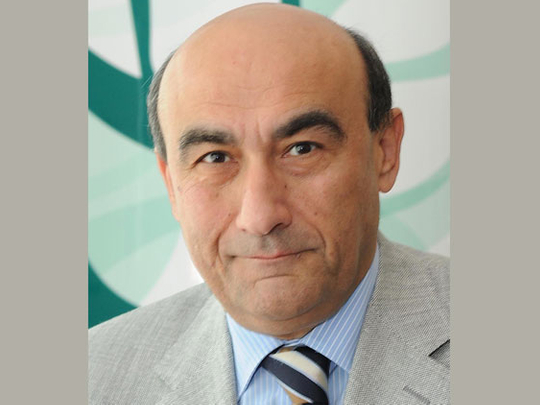
Dubai: Lenovo is turning its focus on smartphones as the computer industry is shrinking annually due to the cannibalisation of tablets and smart devices.
The Chinese manufacturer is the second largest computer manufacturer after HP and it is the second largest smartphone vendor in China.
“Lenovo’s ambition is to ship 50 million smartphones worldwide, up from 29 million last year as the industry is expected to register more than 32 per cent year-on-year growth,” Gianfranco Lanci, President of Lenovo Europe, Middle East and Africa, told Gulf News.
“We want to become relevant in the UAE and Saudi Arabia and become the top three smartphone vendor in the region in three years’ time.”
According to IDC, 958.8 million smartphones are expected to be sold this year globally, growing to 1.5 billion by 2017.
He said the UAE is an important market for Lenovo as it has the highest smartphone penetration rate of 62 per cent in the world. There are two million smartphones today, growing to 2.8 million by 2017 and 4 million smartphones in the Middle East and Africa (MEA) region by 2017.
On Monday, Lenovo launched six models catering to different price segments (Dh499-Dh1999).
“The interesting point is that they are focusing the emerging markets. They have launched an entry-level smartphone for Dh499. This way, they have come in line with other vendors like Huawei and ZTE. They have a broad range of offerings. To capture emerging markets, you need to have affordability. These models are going to put a pressure on Samsung and other brands,” Matthew Reed, principal analyst at Informa Telecoms and Media, said.
Lenovo’s next focus will be Africa. Africa is the biggest among “emerging markets”, Lanci said.
Lenovo smartphones are powered by Intel’s Atom processor which improves battery life and consumes less power and runs on Android operating system.
Around 40 per cent of the Arab World uses Android while 64 per cent of the world also use Android operating system.
“You cannot call the BRIC countries as emerging markets anymore; Africa is the real emerging market because there are one billion people. Most of them need a basic computer or basic smartphone. This is an area we are going to make a lot of investment,” he said.
“We launched these models in India, certain parts of Russia; certain parts of Asia and China as part of phase one. Phase two covers MEA, certain parts of Russia and certain parts of Far East. Next year we will move to the West next year,” Lanci said.
Lanci said that Lenovo’s strategy is to expand the post-PC era into new markets and push hyper-growth in smartphone markets in Europe, Middle East and Africa.
“Our ambition is to sell four million tablets in EMEA this fiscal year and capture 5 per cent of the market pie. Globally, our target is 10 million tablets this fiscal year, up from 2.2 million last year.
“Our next focus is to build up our apps space. We have more than one billion downloads in China and plan to move these apps out of China,” he said.
According to Oliver Ebel, Executive Director of Lenovo MEA, “We are analysing the market and we will talk to developers to create Arabic content.”












